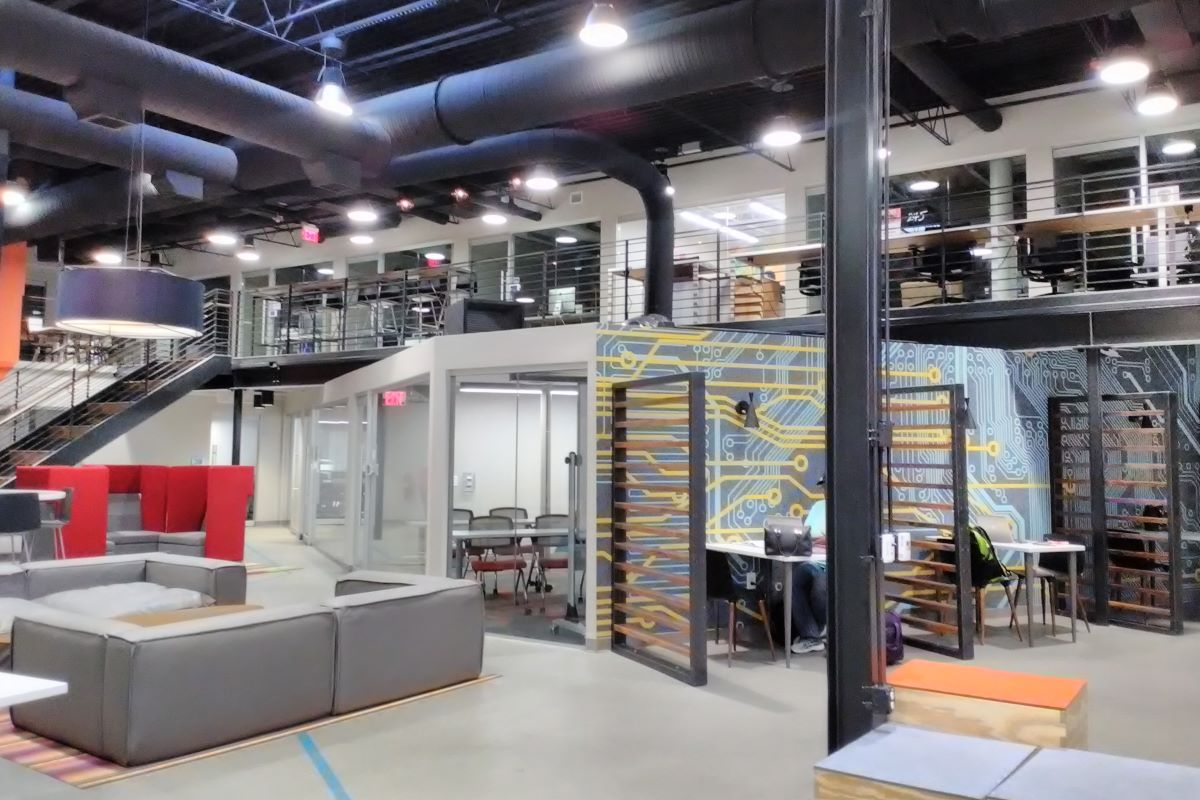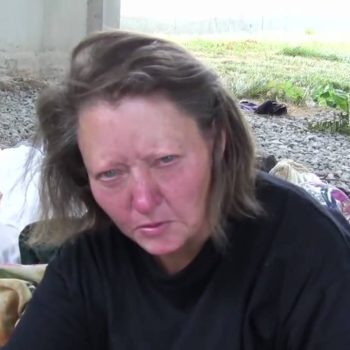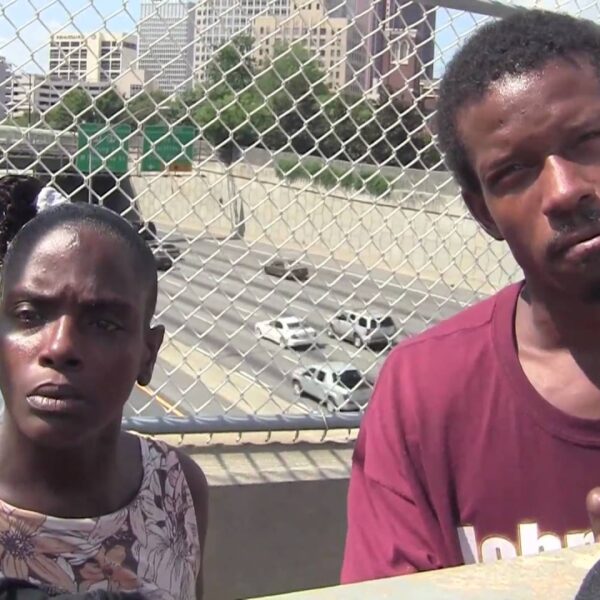The average person doesn’t seem to understand why most homeless people choose the streets in order to avoid shelters. As I’ve written in my book “The Shelter of the Shade Tree”, staying in a homeless shelter is comparable to jail. It’s bad enough police treat homeless people like criminals because they don’t fit society’s normal behavior. In a shelter, those things are further demonstrated in the way residents are treated.
For instance, in my present shelter here at City of Refuge (COR) in Atlanta, Ga, there is a daily routine. Lights on at 6am daily and everyone must wake up. If you wish to take a shower, everyone must be out before 6:45 am to prepare for breakfast. There are 12 showers for about 60 residents in my dorm alone. I normally get up between 4:30 to 5am to jump in the shower before the others rise. The earlier the better. This is every day, mind you – there’s no such thing as sleeping in.
Breakfast is at 7am. You are forced to go, no exceptions, even if you have a night-shift job. You must line up for breakfast so that the RSAs can account for everyone. There are a few women here who walk with walkers and canes. Yet, they must stand for 5 to 10 minutes waiting to go to breakfast. Then, in the cafeteria, they must stand to wait to be served. No one else can get their food for them. This is to make sure each person gets fed and no one gets more than one plate. After breakfast, precisely at 7:30am, done or not, you must place the chairs on the tables and wait until told to return to the dorm.
Monday through Friday, you must leave campus after breakfast.
On Saturday and Sunday, you can choose to stay but you must remain inside the building. You cannot wander the grounds. No exceptions. If you stand outside the buildings, you are loitering, and you could be written up. Those who work the night shift may sleep if there is a bed available, upon permission from your case manager.
If you decide to leave the grounds, you cannot return until noon for lunch. After lunch, you cannot return until after 4pm. Dinner is at 5pm. There are no shops, laundromats, convenience stores, parks, libraries, etc. within a mile of campus. If you do not have bus fare, you must walk to your destination. Bus fare is granted to those who have jobs for a short period until your first paycheck. If you’re disabled, there is a bus that will take you downtown and drop you off. After drop off, you’re on your own until it returns for you in the afternoon.
Dinner is from 5-6pm. Afterward, you must return to the dorms where you can mingle briefly with fellow residents until lights out at 10pm. If you’re not signed in and in your bed at that time, it’s another write up. The only exception is a job, hospital, or jail. In the case of jail, you’re booted out when you return. You’re allowed three write-ups while staying at COR. After that, it’s up to your case manager whether you’re dismissed from the premises or allowed to remain, under certain conditions, on a probationary period. Most of the time, those who have mental problems are allowed to stay.
The Positive Side to Shelters
Truthfully, who can live like this? Shelters are set up so that the residents don’t become too comfortable. They want to make sure everyone pursues work in order to get themselves together enough to get out. For free spirits unwilling to adapt to the ways the shelter deems as progress, you are booted back out onto the streets ASAP. Thus, adding to the number of unsheltered, which is the majority of the homeless population.
If you have a strong mind and can abide by the rules, a shelter can help you to gain ground in rebuilding your life. There are programs and resources not easily found if searching on your own while on the streets. These programs are only available to shelter residents. The administrators and case managers have access to people inside, and that places you on certain lists above those coming off the streets. But it shouldn’t be that way. Help should be equally available to everyone.
For example, COR holds a private job fair monthly for its residents. Clothing is provided for the interviewing process. There are also free classes for residents available on COR’s premises. I enrolled in an IT Coding course, which teaches C++ and other computer languages. This type of program is not readily available for free anywhere else. There are also culinary classes, CNA classes (certified nurse’s assistant), mechanic classes, etc.
None of this is available to those on Atlanta’s streets. Just like the rest of society, you must conform to reap the benefits of assistance, services and opportunities. Is this the way it should be to make it in this society? In other words, the free spirit has no place.
Is There a Positive Side to the Streets?
I’ve seen encampments in Atlanta. They’re not as prevalent as LA, but they do exist. I’ve also seen people sleeping on the sidewalks downtown. Why does someone do this when there are shelters available? One benefit is people might give money to help them directly. You can sleep whenever and wherever you want. There is no one to answer to – you are free to do as you please as long as it doesn’t harm anyone. There are no rules to follow and no threat of eviction. And finally, and most importantly, shelters may not have any available beds.
But, consider the discomforts. No bathrooms (that’s a biggie), no protection from the elements and no one to trust or to watch your back. Police presence and the possibility of being arrested. And no opportunity to build your way back to stability. Having stayed on the streets of Venice Beach, CA, I can appreciate the rules and regs of a sheltered life. Exposure to me is not an option. But I can also understand the freedom that comes from being on your own out in the open. And understanding is the first step towards solving this huge dilemma facing the US today.
Those who are independent doing exactly what their dream dictates, who have opportunities and connections to find that brass ring allowing them to live creatively and effectively, cannot understand the rest of us who must struggle doing jobs we cannot stand for wages that barely pay the bills all while making others rich. Rebellion against this invisible force is the major reason we have such a huge population of homeless people. It’s heart wrenching and hard to swallow for free spirits. Hope for change is all we have at this point. And it’ll have to be enough, for now.













